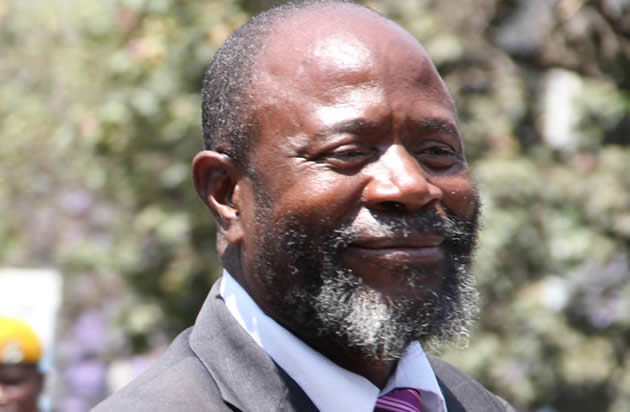The heat up there unbearable
Perspective Stephen Mpofu
Title holders particularly in the sport of boxing will tell you (yes,you) that the tenure up there is no joke but sweat, sweat and sweat; otherwise if you slacken your guard you are punched drunk to slump against the ropes with jeers from your erstwhile fervent fans. Zimbabwe right now prances round the ring flexing her muscles to frighten off any contenders for her educational title.
Better still, having clawed her way scaling cliffs to sit nursing bruised nails at the educational summit of Africa’s Kilimanjaro she must work extra hard so as not to be toppled by contenders hot in pursuit of the country’s top literacy spot on the continent.
Yet can it really be said with equanimity that Zimbabwe is serious in her defence of the crown the country boasts as Africa’s most literate nation?
The answer to this question will probably be found in the angry words of Primary and Secondary Education Minister Lazarus Dokora when addressing provincial education directors and district officers from all over the country at a strategic planning workshop in Kariba a week ago.
He bemoaned a lack of proper supervision of schools and warned the government might be compelled to abolish the post of education officer at both provincial and district levels if no change for the better took place in the management of schools.
The Minister suggested there were cases of impropriety and mismanagement of schools as a result of supervisors not carrying out their duties to the letter.
Convinced that Big Brother was not watching them teachers sat on their backsides, pupils ran with their fancies with decay in educational structures the upshot of mismanagement in the institutions of education where exemplary behaviour ought to be nurtured for future leaders of this nation in various aspects of life.
Obviously, if stringent yet fair administrative measures are not reinforced in schools standards will crumble and Zimbabwe might sooner rather than later start to flaunt not the cream of education that the country is renowned but rather its whey that for the most produces functional literates good enough to be spanner-boys who cannot in all fairness to them move mountains standing in the way of sustained social and economic transformation, Zimbabwe’s agenda for many years to come.
Primary and secondary schools should feed into universities students who will form think-tanks in the country’s successive governments in order for sustained development to take place.
Zimbabwe needs technocrats and other people with the requisite skills continually to take the country to higher levels of development socially, economically and politically.
The highest literacy record that Zimbabwe holds in Africa should enable the country eventually to be a source of technical assistance to countries less developed educationally than this country is.
Skills should be shared and shared alike by countries on a regional, continental, even intercontinental levels to enhance the upliftment of nationals less advanced in human resource development.
Zimbabwe’s literacy rating puts the country in good stead to supply skilled personnel to other countries badly in need of such a resource, and with arrangements being made in any agreements reached for part of the salaries for such personnel to be remitted directly to this country for investment and use by the Diasporans upon their return home.
Moreover, in international relations technical assistance is popular because, unlike other forms of foreign aid it has no strings attached to it and goes a long way in developing and capacitating people in recipient countries with requisite skills in countries benefiting from that kind of assistance.
Minister Dokora also said the government had plans to reintroduce school inspectors to rid the country of the decay in educational structures.
Those who went to school in Rhodesia will be aware of the fear that education inspectors inspired in the hearts of teachers throughout the country, thereby improving the administration of educational institutions and with that the quality of education as blacks strove to acquire higher education and skills in an effort to transcend racial oppression by successive white racist regimes.
If for the time being there is anything that Zimbabwe should fight, and fight with tooth and nail to defend, it is its high literacy rate, and therefore quality education, on the continent.
Therefore anyone seen to be trying to compromise the country’s proud educational status should be pushed out of the way and into the shade.








Comments